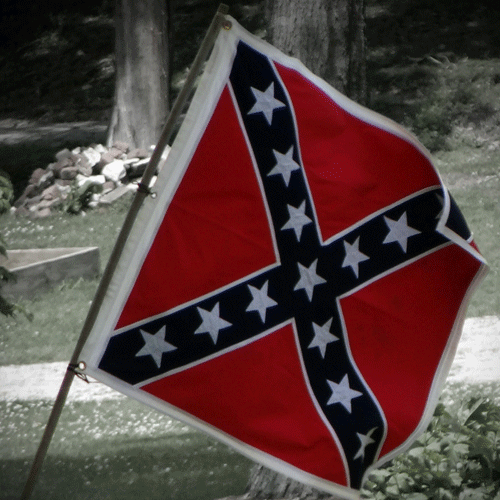Texas Can Refuse the Confederate Flag License Plate: Walker v. Texas

In Walker v. Texas Division, Sons of Confederate Veterans, Inc., the U.S. Supreme Court held that Texas’ specialty license plate designs constitute government speech. Accordingly, Texas was entitled to refuse to issue a confederate flag license plate featuring the design without running afoul of the First Amendment.
The Facts of the Case
As more fully detailed in our preview post, Texas, like many states, allows drivers to choose from a variety of “specialty” license plates featuring unique designs or messages. In 2009, the Sons of Confederate Veterans proposed a specialty-plate design featuring the logo for the Sons of Confederate Veterans. In response to concerns from the public, the Department of Motor Vehicles Board rejected the design.
The Sons of Confederate Veterans challenged the decision, arguing that the Board violated the First Amendment by rejecting their proposed license-plate design. In response to the suit, Texas maintained that the government-speech doctrine allows a State to choose the messages and symbols that will appear on its specialty license plates. It further argued that the Board’s decision to reject the Sons of Confederate Veterans’ license-plate proposal was not unconstitutional “viewpoint discrimination.”
The Majority Decision
A 5-4 majority on the U.S. Supreme Court held that the state of Texas was well within its rights to reject the Confederate Flag design because the messages conveyed on license plates constitute government speech, which is generally not subject to the First Amendment. “When government speaks, it is not barred by the Free Speech Clause from determining the content of what it says,” Justice Stephen G. Breyer wrote.
In reaching its decision, the majority emphasized that states, including Texas, have long used license plates to convey government speech, such as slogans urging action, promoting tourism, and touting local industries. In addition, the justices noted that the public associates license plates with the State. Finally, the majority placed weight on the fact that Texas maintains direct control over the messages conveyed on its specialty plates by giving the Board final approval over each design.
The Dissent
In his dissent, Justice Samuel A. Alito Jr. rejected the notion that license plates constitute government speech. Instead, he characterized them as “little mobile billboards on which motorists can display their own messages in support or opposition of a number companies, sports teams, products and social issues”. Chief Justice John G. Roberts, Jr., Anthony M. Kennedy, and Antonin Scalia joined his dissent.
To highlight his opinion, Justice Alito offered the following example: “Suppose you sat by the side of a Texas highway and studied the license plates on the vehicles passing by… If a car with a plate that says ‘Rather be golfing’ passed by at 8:30 a.m. on a Monday morning, would you think: ‘This is the official policy of the State — better to golf than work?’” Alito further argued that restricting such speech could set a dangerous precedent.
Previous Articles
SCOTUS Decision in Bowe v. United States Is First of the 2026 Term
by DONALD SCARINCI on February 5, 2026
In Bowe v. United States, 607 U.S. ___ (2026), the U.S. Supreme Court held that Title 28 U.S.C. § ...
SCOTUS Rules State Can’t Immunize Parties from Federal Civil Liability
by DONALD SCARINCI on January 29, 2026
In John Doe v. Dynamic Physical Therapy, LLC, 607 U.S. ____ (2025) the U.S. Supreme Court held that...
Supreme Court to Address Racial Discrimination in Jury Selection
by DONALD SCARINCI onWhile the U.S. Supreme Court has concluded oral arguments for the year, it continues to add cases t...
The Amendments
-
Amendment1
- Establishment ClauseFree Exercise Clause
- Freedom of Speech
- Freedoms of Press
- Freedom of Assembly, and Petitition
-
Amendment2
- The Right to Bear Arms
-
Amendment4
- Unreasonable Searches and Seizures
-
Amendment5
- Due Process
- Eminent Domain
- Rights of Criminal Defendants
Preamble to the Bill of Rights
Congress of the United States begun and held at the City of New-York, on Wednesday the fourth of March, one thousand seven hundred and eighty nine.
THE Conventions of a number of the States, having at the time of their adopting the Constitution, expressed a desire, in order to prevent misconstruction or abuse of its powers, that further declaratory and restrictive clauses should be added: And as extending the ground of public confidence in the Government, will best ensure the beneficent ends of its institution.





